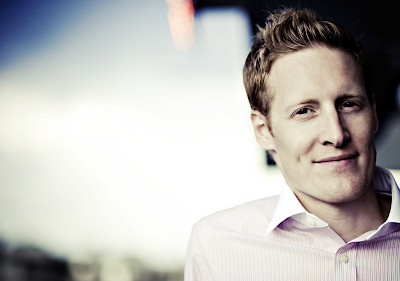Ben has a lot of marketing cred especially when it comes to the world of real estate. Makes sense, seeing as Polygon is one of BC’s leading developers in one of the hottest real estate markets in Canada (the world?). He’s also known for his very active Twitter, so why not give him a follow!
But for now, focus! and read on for Ben’s insights into Vancouver’s housing market, the new hot neighbourhoods in the city, and the characteristics of a true marketer.
The second one is in Abbotsford. For Toronto it’s equivalent to Hamilton in its proximity to the big city, yet it’s a city of its own. There are some people who commute all the way in, but it’s not just a bedroom community. We haven’t been out there in over 25 years, so for what we do nowadays, it’s pretty much the first time we’ve been out there. We’re building a large masterplan that we’re calling Westerleigh. It’s predominantly townhomes and there will be one apartment building and a large clubhouse. That’s exciting because it’s the farthest afield we’ve been in a long time.
BBH: Do you have any tips for where the next hot neighbourhood will be in Vancouver?
I’m totally biased but I’d say the River District in Vancouver also stands to be a really hot neighbourhood. Richmond is also hot right now. Metrotown in Burnaby, which I equate to Square One in Mississauga, is burning hot right now and I think there’s a lot left to happen there.
BBH: Do you think prices are too high in Vancouver? Do you think there’s some sort of bubble going on or do the prices accurately reflect the demand in the market right now?
BS: The answer is yes and no. Are prices too high? Yes, they’re pretty expensive. The problem is density. We’re still a young city as far as I’m concerned. We’re maturing and we’re a very desirable place to live.
The challenge is you can still buy a single family home only minutes from downtown that’s got a full backyard and you probably have 2,500 to 3,000 square feet and three or four bedrooms and your neighbour isn’t touching you. That’s where the problem lies. You can’t find that in other major cities that have the values we have. With the single family home market in Toronto, you have to get farther out to get single detached homes or a backyard, but that’s predominantly what Vancouver is. That’s why the prices reflect that.
For the people who are skeptical about what I’m telling you, if you took out anything that’s not normal in other cities, like all the single family homes with backyards and you based it on apples to apples for the product type between Toronto and Vancouver, I think you’d see the numbers a lot more relatively. If you go out to the ‘burbs, there are some really affordable places to live that offer really good values. I think density is going to be the answer to the affordability problem, not some bubble bursting.
BBH: What advice would you give to someone who’s interested in starting a career in marketing?
If you’re more the type who likes bigger companies, try and find a company that’s doing a lot of volume so you can get a lot of experience. Granted it probably would be in a narrower scope of work, but I think it would really serve people well in their careers.
Go deep or go broad is the key. There’s a lot of people who find some really cool experiences that are really niche early in their career, but it’s harder to transfer out of those. The more experience you can have, either deep or wide, the better.
BBH: Which social network do you prefer, Twitter, Facebook or Google Plus?
BS: All of them for different reasons. I wrote a blog post about Google Plus recently and I really believe it’s the game changer. To me I think the fact that it’s so integrated with search is what’s really going to change the game — probably moreso for marketers like me.
All the search results that we’re trying to attract are going to be driven by social networks. It won’t just be based on whether your keyword accuracy is on or whether you figure out the algorithm. It’s also going to be based on whether the people who you are attracting have friends that know who you are and like you and are connected to you as well. I think Google really has a chance to change things.
BBH: What was the best and worst day job you ever had before beginning your career?
BS: The best day job I ever had was working in a skateboard and snowboard shop. That was fun because there was a only few of us and we had to learn everything. I actually learned a ton about retail, marketing, promotion and customer service. It was a great job.
The worst job was selling cars for three months. I hated it! I actually learned more about sales in those three months just because it’s such a tough thing to do, but it just wasn’t me.
Thanks Ben for taking the time to buzz with us!







